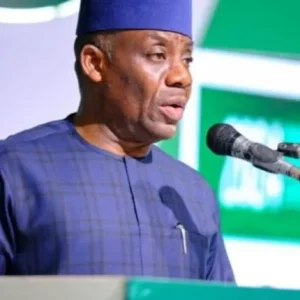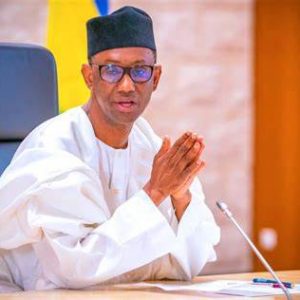
In a recent Proshare Opinion Editorial titled Rethinking Integrity in Policy Advisory and Public Affairs Analysis, I posed a poser to the effect of what propaganda in public governance is. At what point does message management become manipulative?. A couple of days back, a social media critical reflection on Peter Obi’s political journey and his impact on Nigeria provided us a case to study. The piece “The Biggest Hype!!!” is basically anonymous, although it was signed off by the pen-name “Sir Soapy”. That alone disqualifies it from giving due attention. Which was exactly what I initially decided to do. But after encountering it a few more times in various social media platforms, shared by persons who ought to be discerning enough, I felt a need to offer some commentaries on it.
What it was all about? In the piece, the author initially felt hopeful about Obi’s potential to address Nigeria’s challenges, especially after his speech during his bid for the PDP presidential ticket in 2023. Obi was seen as relatable and resonated with the everyday frustrations of Nigerians, leading to the formation of the “Obi Movement.”
However, the author expressed disappointment in what he posited was Obi’s lack of concrete policies and solutions. Instead of presenting detailed plans and assembling a team of experts, he wrote that Obi deserved to be criticized for reiterating well-known issues without offering actionable solutions. The author compares Obi to a political opportunist, similar to Trump in the U.S., who capitalizes on public frustration but lacks the substance to bring about real change. He went further to highlight Obi’s failure to strengthen the Labour Party. He touched on his alliances with discredited political figures, which undermines his credibility. The author concludes by questioning Obi’s leadership and urging people to ask what he truly stands for.

In effect, Sir Soapy paints Peter Obi as a political opportunist. To him, he is someone who echoes the frustrations of Nigerians without offering real solutions. As I read, I thought that the critique couldn’t withstand even the lightest scrutiny. To debunk the critique is part of the rethinking and reintroduction of integrity in public affairs analysis and policy advisory.
The facts?
The truth is simple: Peter Obi has articulated one of the most comprehensive reform agendas Nigeria has seen in recent decades.
Peter Obi is not just identifying problems. He offers solutions. Like all persons with governance integrity, he is on record to criticise only when he has a matching solution.
It’s fashionable for critics to claim Obi only repeats what Nigerians already know. These include the most obvious facts about how expensive governance is. That the infrastructure is weak is a fact. That the people are suffering is equally evident. But they conveniently ignore his 62-page policy document, Our Pact with Nigerians, which sets out a seven-pillar strategy addressing security, economic diversification, institutional reform, infrastructure, education, healthcare, and foreign policy.
For example:
- Energy & Industrial Policy: Obi proposed a twin-track energy plan combining immediate power stabilization with long-term green transition strategies.
- Economic Diversification: He pledged to move Nigeria “from consumption to production” through agriculture, manufacturing, and technology-driven innovation.
- Institutional Reform: Plans included devolution of powers, digitization of public services, and restructuring the security architecture.
If that’s ‘noise’ to the Obi critiques, then what does real substance look like?
These are concrete policies. They are publicly documented, costed, and benchmarked against global best practices (elections.civichive.org).
Obi has a track record, not just rhetoric
Critics love to ask, “What exactly has Obi done?” Well, as governor of Anambra State (2006–2014), he demonstrated prudent governance:
- Grew the state’s reserves, leaving ₦75 billion in savings.
- Rehabilitated education, making Anambra top in WAEC rankings.
- Revamped healthcare and infrastructure with measurable outcomes.
Compare this record to the fiscal recklessness of many of his contemporaries, and you’ll see why Obi has credibility beyond campaign slogans.
Alliances are strategy, not betrayal
The author attacks Obi for engaging with figures like Atiku Abubakar, David Mark, or Nasir El-Rufai. But Nigeria’s political landscape is fragmented. Building a viable alternative requires coalitions, even with ideological differences. The choice of the African Democratic Congress (ADC) party was a well-considered one. You only need to check out the pedigree of ADC to underwrite the choice. Among other progressive dispositions of the party, it is the only party in Nigeria and perhaps Africa as a whole that has ingrained the Diaspora as its 7th Region. This is while successive governments of Nigeria have failed to grant Diaspora Voting, just to keep it at an example.
Let’s not forget: Obi publicly challenged Atiku to step aside for the good of Nigeria, saying, “Be a statesman. Support a candidate who can unify and deliver.” In the politics that should move Nigeria forward, alliances must be tools for change. They should not be proof of compromise. President Bola Ahmed Tinubu and late President Muhammadu Buhari were the unlikeliest political bedfellows. But did that stop them from the coalition that birthed the All Progressives Congress (APC) that went ahead to wrestle power out of the hands of Africa’s largest political party, the People’s Democratic Party (PDP)? No, it did not! One then wonders what the complaint about Obi and the coalition is all about.
Labour Party realities were beyond Obi’s making
Was the Labour Party fragmented? Yes. Is fragmentation a feature of African political organising? Yes. The fact, however, is that the internal party crises of the Labour Party predated Obi’s entry and were further complicated by legal tussles. Even now, he continues to champion a broader Third Force coalition, showing that his ambition is about reforming the system. If anything, his actions and postures ought to be interpreted as those of a decent politician with no interest in clinging to a broken platform.
Obi is not Buhari, and certainly not Trump
Comparing Obi to Trump or Buhari is a false equivalence. Unlike Trump’s demagoguery or Buhari’s rigid silence, Obi’s politics is anchored in data, dialogue, and policy. His interviews are filled with figures, examples, and lessons from other nations. He doesn’t thrive on division or populism. He has demonstrated directly and indirectly that he thrives on ideas. It is safe to assert that Obi is not a populist. He is a pragmatist who speaks in facts, not empty promises.
Now, let us get to the real question we should be asking
The critic ends by asking, “What exactly does Obi stand for?”
Here’s the answer, gleaned from public records and antecedents: prudence, accountability, and a Nigeria that works for all.
What Obi offers is not perfection. He offers a credible, realistic pathway out of national decay. Those who dismiss him as “noise” either have not read his policy documents, deliberately ignore his record, or fear the political disruption he represents. It will appear that the undue critiques of Peter Obi is borne mainly out of the intention of continuing to recycle the same old elite networks while mocking those who propose a different way.
Ultimately, this is not about Obi the person. It’s about Nigeria, the nation. I am a non-card-carrying member of any political party in Nigeria. I offer these commentaries or rebuttals if you wish, out of a desire to see integrity and decorum reintroduced in public affairs analysis and policy advisory roles in Nigerian politics. Evidence does not support the assertion that Peter Obi is the ‘biggest hype.’ Rather, the reality is that he might be the clearest signal yet that Nigerians are demanding substance over sentiment. True patriots and friends of Nigeria should not be frightened by that. If the establishment is frightened by what Obi represents, let it deal with it. Leave the citizens out of it.
The Author, Collins Nweke, is a Senior Consultant on International Trade and Economic Diplomacy. He served until December 2024 as Green Party Councillor at Ostend City Council, Belgium, for three tenures. He is a Fellow of the Chartered Institute of Public Management of Nigeria and a Distinguished Fellow of the International Association of Research Scholars and Administrators. Collins has done extensive socioeconomic and governance work across Africa and Europe. His focus includes matters of governance, diaspora, equitable trade, and financial inclusion. Collins writes from Brussels, Belgium.
Stay ahead with the latest updates!
Join The Podium Media on WhatsApp for real-time news alerts, breaking stories, and exclusive content delivered straight to your phone. Don’t miss a headline — subscribe now!
Chat with Us on WhatsApp








